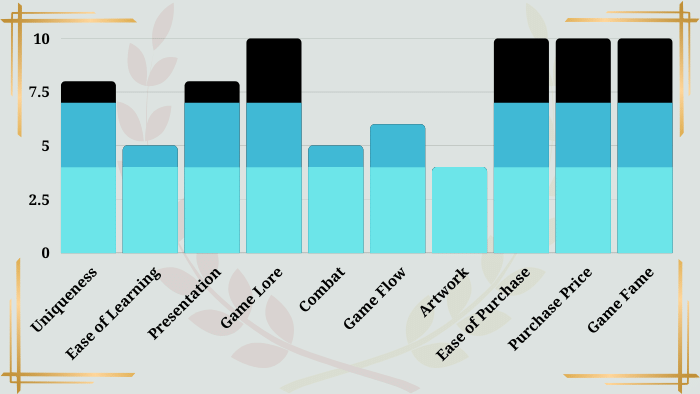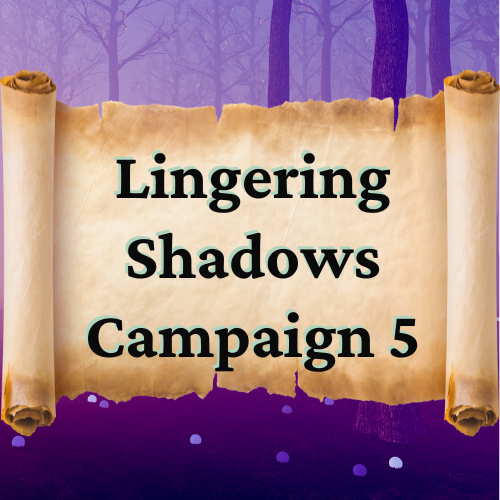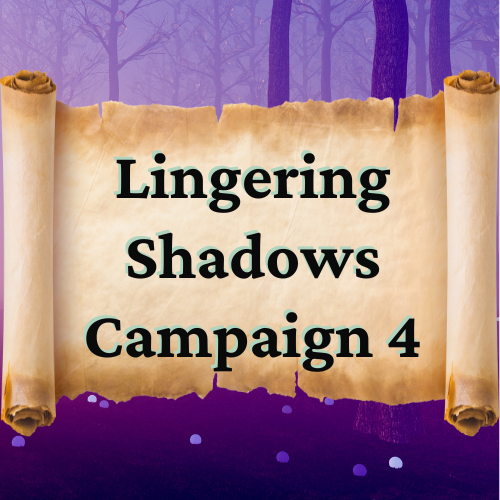Home > TTRPG Reviews
Zweihander RPG Review
This Zweihander RPG Review is part of my “Best Tabletop RPGs of All Time” article. If you want to check out more TTRPGs and see how other top-tier tabletop RPGs are ranked, visit that page.
My Review – 76 / 100

Zweihander is a game that you either love playing and you would rate it a perfect 100/100, or you don’t hardly like at all, and may note even rate it among the best TTRPGs of all time. This game is that polarizing, which as you’ll see in this review, is part of why so many people flat out love the game.
To be very forthright with you though if you’ve never before heard of or played Zweihander, in my experience, most people would never play more than 1-2 sessions of this RPG before calling it quits.
I think that so long as you and your gaming group know what type of game you’re all getting into, if you start playing Zweihander, you should have a good shot of getting a long-term RPG campaign rolling.
Zweihander’s Uniqueness: (8/10)
There’s lots to talk about when it comes to unique aspects of Zweihander, but I’ll start with a few unique points when it comes to dice and rolling that I generally like:
- Zweihander uses percentile dice, which I always think is interesting for tabletop RPGs as it provides a framework which can contain a great deal of both simplicity and complexity.
- The game has “Fury” and “Chaos” dice, which are “wild dice” for damage and random effects when casting magic.
- There’s also a “fortune pool” for players to re-roll dice, and a “misfortune pool,” for the dungeon master to do the same. These things I generally like.
On an entirely different note, Zweihander has the largest collection of tables for randomly-generating character traits of any game I’ve ever seen. You can generate your gender (…why?). Randomly generate your race (pretty cool). Races have randomly generated racial traits. There are also randomly generated character names, based on race and gender (ok, also pretty cool, I suppose). On and on it goes. You can’t fathom the number of randomly generated tables in this game, which I have to say, is pretty unique.
Zweihander is a multiclass sort of RPG. There are some class based RPG elements, but as your spend Reward Points (Exp), you improve your character however you see fit. To “Tier Up,” you need to reach certain milestones of character development, but doing so allows you a second, and finally, a third, “Profession” (class).
Of all the tabletop RPGs on this list, Zweihander is the most realistic, dark, grim, and gritty. If I had to summarize it into one aspect, I’d say that the amount of realism in Zweihander is the reason people either love or loathe this game.
Ease of Learning Zweihander: (5/10)
Character creation in Zweihander is very in-depth. I mentioned the tables for randomly-generating your character, above. A few more tables I didn’t mention, already: there are random tables for your character’s height, weight, build, and social class. This sounds really cool at first, but just think about it. It’s the kind of thing that’s really neat in a video game, but details like that in a TTRPG are a bit (way too) much.
The rules are also confusing when it comes to character creation in the following way: it seems like you must roll randomly for your character’s gender, archetype, and profession. There is some language in the rulebook that suggests players have the power to choose important details of your character, but it’s just that if you want to play the game exactly as-written, it’s really not clear what you should do.
When it comes to character classes, the game is still pretty confusing. I counted twice to make sure: there are 72 basic professions in Zweihander. There are also 46 elite professions. One important thing to note though, that is really good, is that just in the classes alone, there is literally an entire world of lore. You could easily build entire campaigns just by reading through the professions section in this book.
Is Zweihander realistic? Yes. Accessible? No, not really. If you really want to learn the game, you’re in for 672 pages (one of the largest among any tabletop RPG). I love the immersion and realism in Zweihander – it’s just too much for me, even as a hardcore tabletop gamer. I feel like Zweihander is a little bit like a novel and RPG rolled into one (again, a positive and negative trait).
I spend a lot of time playing with people new to tabletop RPGs. I love introducing the genre. It’s a passion of mine to help people find passion in tabletop gaming. The bottom line for me when it comes to Zweihander is that due to its complexity, it’s just not the game I would ever introduce to a first-time tabletop gamer.
I think doing so would easily overwhelm someone, and maybe even turn them off from the RPG genre if they thought every game was like this one.
Zweihander Presentation: (8/10)
Zweihander’s rulebook has nice coloring to show separate sections, along with easily-distinguishable headers.
The game is all about promoting roleplaying, as the designers feel that the act of roleplaying gets lost in many other tabletop RPGs. I agree with that sentiment. Also, the emphasis on roleplaying improves the overall presentation of Zweihander as everything in the book is customized for players to better roleplay their characters.
Zweihander Lore: (10/10)
When you’re talking Zweihander, you’re talking gritty Viking lore. Overall, the game is very realistic, in terms of being a low-fantasy setting. However, there is also a hint of Viking/ Norse magic (there are ogre races, dwarves, elves, etc. for instance).
In my humble opinion, everything about every aspect of the lore in this game is incredible. Zweihander is one of the absolute best games at creating realism, immersion, and getting players into the game’s lore – all of which makes roleplaying substantially easier.
As I mentioned before, consider Zweihander 50% novel, and you’ve got a good handle on proper expectations for playing the game.
Combat: (5/10)
I love when games offer depth within the core mechanics, so long as learning the game is also simple. In my mind, games that have an easy entry level, where I can explore options over time as I become more familiar with the game, are ideal.
Unfortunately, in Zweihander there are lots of options in combat from the very beginning, which is a problem. On the other hand, player skill plays a big factor in how battles unravel, which I really like. But since there is no “introductory course” in combat, as a player, you sort of have to learn all the available combat maneuvers and increase your skill in battle, all before you feel like you’re much use when it comes to combat. Basically, just a steep learning curve.
Another big problem with combat in Zweihander is the complexity of resolving attacks. With any given attack, players must resolve the follwing 8+ steps:
- Chance to hit
- Chance to dodge
- Weapon stats
- Damage
- Damage threshold
- Condition
- Injury
- Sacrificing fate points
- And more
Obviously, the more that’s involved with calculating the resolutions to any given action of play in a tabletop RPG, the slower that game goes. For your reference, there are 6 total pages that explain a single attack action and how to resolve it. That’s a LOT.
Zweihander does not have fast-paced combat. It’s gritty. It’s cool. But it’s complex, extremely dangerous for your character’s lifespan, and doesn’t move fast at all. When it comes down to it, I think it’s the snail’s pace of the “immersive hard-core combat” that really makes the game boring for me.
Game “Flow”: (6/10)
The lore in Zweihander is great, which contributes to game flow. However, combat is slow. Plus, this is overall the most realistic TTRPG that I’ve ever seen. The real question is whether the realism is a positive or negative for game flow. Your personal answer to that question might just decide whether or not this game is for you and your gaming group.
Consider the following before you decide:
- When playing a campaign, you have to account for your character’s injuries, disease, disorders that require psychosurgery, extreme weather, effects from intoxication, sleep deprivation, starvation, infection, blood loss, and much more.
- You track your character’s carrying capacity based on your their strength score, for things like equipment and necessities. You also track things like arrows, food, rope, and other survival necessities.
For me, it’s too much. Too realistic.
I understand that Zweihander aims to be a roleplay game where people actually roleplay. But I normally find that people select their own desired level of roleplaying, no matter how many cues a TTRPG provides. There’s also nothing wrong with players selecting their own level of roleplaying for a game they play in their free time.
To give you an idea of how hardcore game realism tends to play out with a gaming group – and what I’d do were to play an entire campaign of Zweihander – is that most in-depth rules like those mentioned above (character injuries, carrying capacity, etc.) simple get ignored.
I like games better when the group glazes over details that are non-important to the game’s actual story – what I’m there to engage with in the first place.
Artwork: (4/10)
There’s plenty of black-and white-art in this game, which honestly fits the mood quite well. It’s dark, gritty, and medieval. In this regard, there’s some sense of satisfaction even from the art present in Zweihander that isn’t colored, or top-quality.
From a buyer’s perspective, however, I have to say that I’ve come to enjoy plenty of top-quality art with my tabletop RPGs. When it comes to Zweihander, I would’ve liked to see more fully finished and colored artwork. Even if there was more artwork that captured the gloomy aspects of the lore, and the colors were subdued to match, I think that would’ve been a great addition to the game’s rulebook.
Ease of Purchase: (10/10)
It’s easy to find Zweihander’s core rulebook on both Amazon and the Andrews McMell website.
Price & How Many Books Do You Need to Play: (10/10)
You can purchase Zweihander as an ebook for only $20. Kindle for only $11.49. Even the hardcover printed version isn’t bad. I have to say that I truly appreciate the accessibility of this game.
Fame & Availability of Supplemental Material: (10/10)
Zweihander has lots of supplemental gaming material. It is very famous as it’s one of DriveThru RPGs top-selling games ever at over 90,000 copies. If you wanted to start a Zweihander campaign though, as I mentioned before, there’s so much lore in the core rulebook alone that you’d probably never even need supplemental books to keep a great story going.
The only challenge with finding a group to play Zweihander would be connecting with gamers who like this realistic style. But, go to your local gaming store, and you’re bound to find someone who’s heard of the game, and is willing to play.
Zweihander is Produced By:

Jacob Tegtman
Dear reader, I hope you enjoyed my article. Tabletop gaming has been a passion of mine since I was 6 years old. I've played just about every game from Dungeons and Dragons to video games like Final Fantasy. These games have inspired me, made me laugh, made me cry, and brought me endless hours of enjoyment.
I started Eternity TTRPG - and the indie tabletop game that goes along with it (Eternity Shop) - to share my love of gaming with others. I believe that in our technology-driven age, tabletop games help bring a sense of magic and community back into our world.
If you love the site, please share it with others! I have lots of gaming-related material for you to peruse and use in your own gaming sessions. If you have any questions about the site or want to contribute, just send me a message using the "Contact" page, which you can find in the site's footer.

Jacob Tegtman
Dear reader, I hope you enjoyed my article. Tabletop gaming has been a passion of mine since I was 6 years old. I've played just about every game from Dungeons and Dragons to video games like Final Fantasy. These games have inspired me, made me laugh, made me cry, and brought me endless hours of enjoyment.
I started Eternity TTRPG - and the indie tabletop game that goes along with it (Eternity Shop) - to share my love of gaming with others. I believe that in our technology-driven age, tabletop games help bring a sense of magic and community back into our world.
If you love the site, please share it with others! I have lots of gaming-related material for you to peruse and use in your own gaming sessions. If you have any questions about the site or want to contribute, just send me a message using the "Contact" page, which you can find in the site's footer.
I may receive commissions when you click links I provide within articles and make purchases. However, this does not impact my reviews. I try my best to simply provide great content and ideas, for you.
As an Amazon affiliate, I earn from qualifying purchases.
Eternity TTRPG offers unofficial fan content for major TTRPGs and the companies that own them, in addition to my own game.
All Rights Reserved | Eternity TTRPG
We may receive commissions when you click our links and make purchases. However, this does not impact our reviews and comparisons. We try our best to simply provide great content and ideas, for you.
As an Amazon affiliate, we earn from qualifying purchases.
Eternity TTRPG offers unofficial fan content for major TTRPGs and the companies that own them, in addition to our own games.





